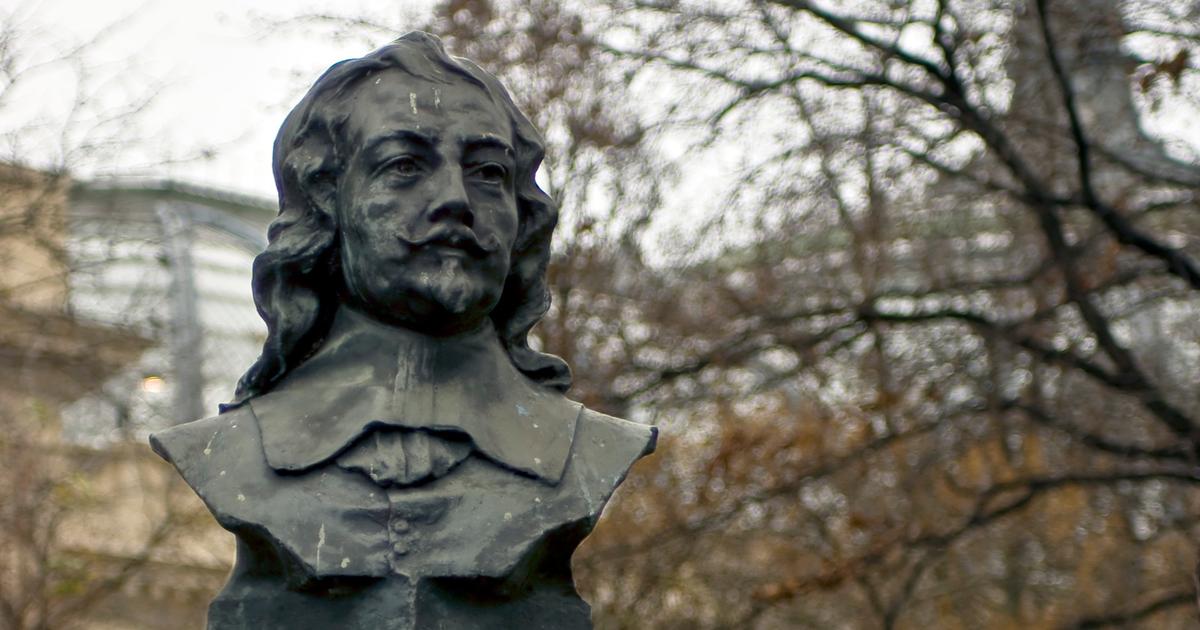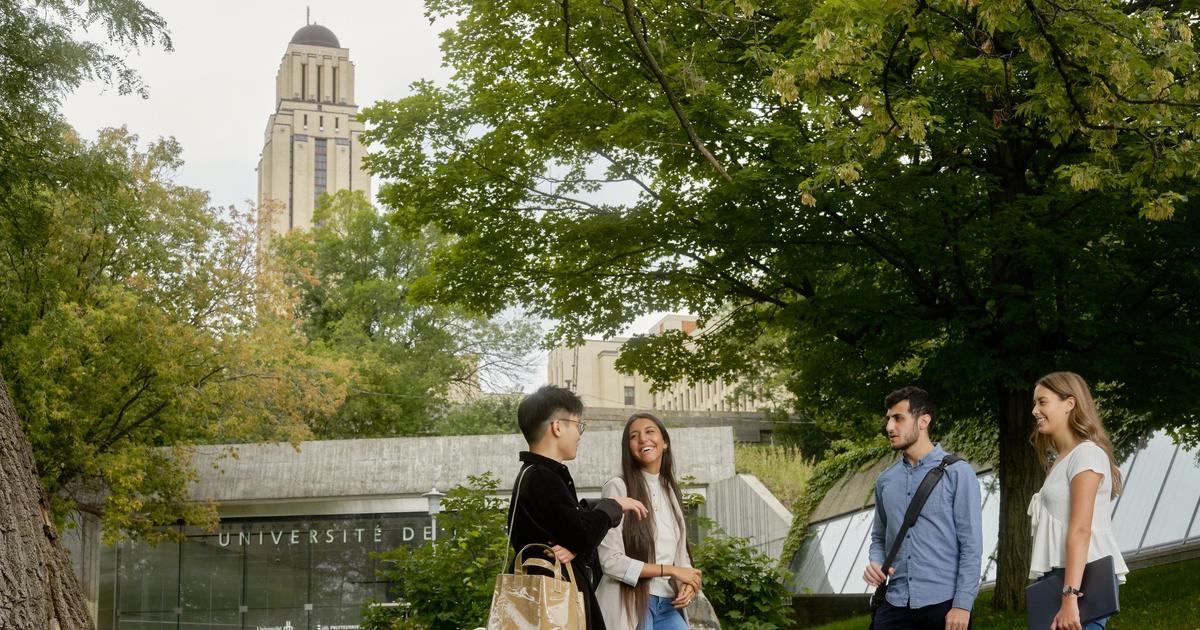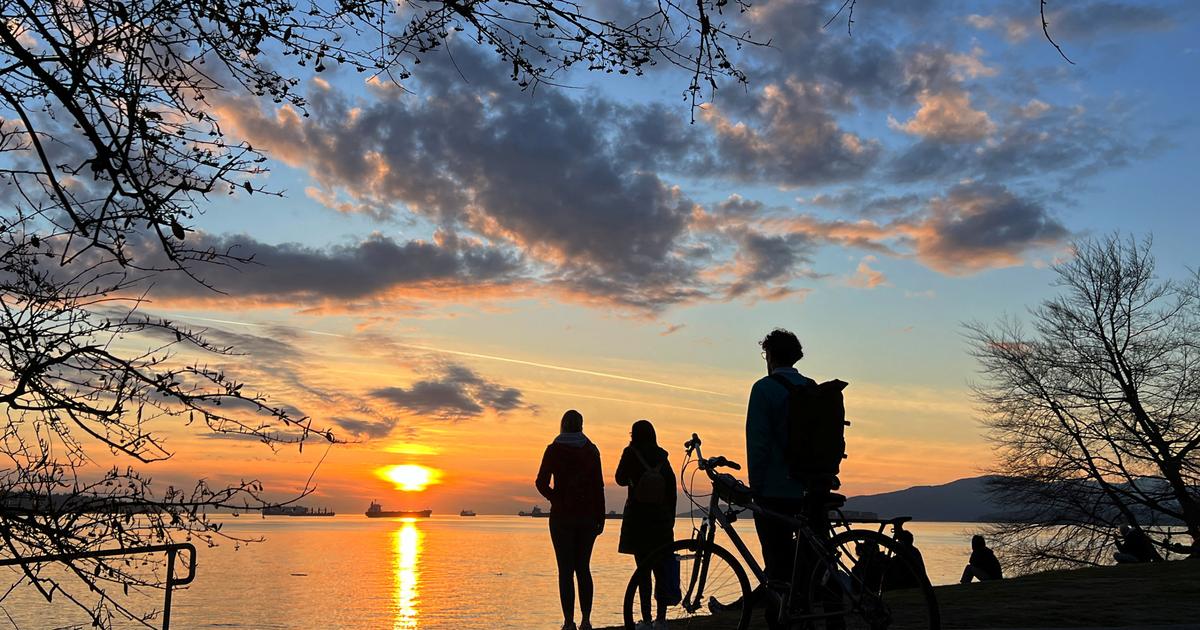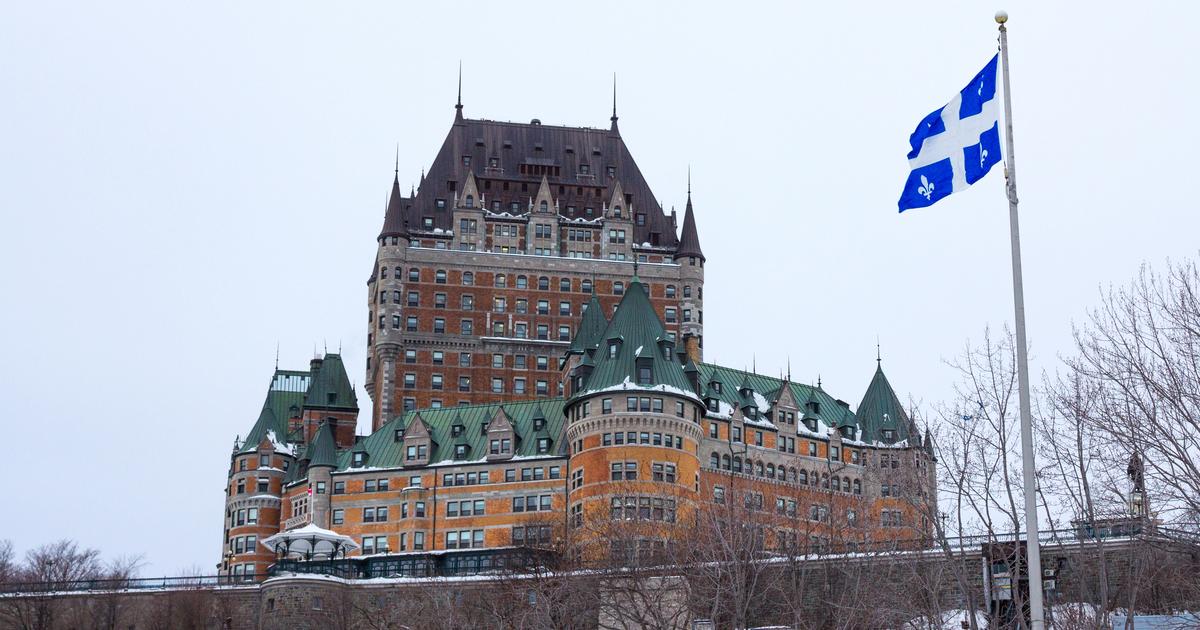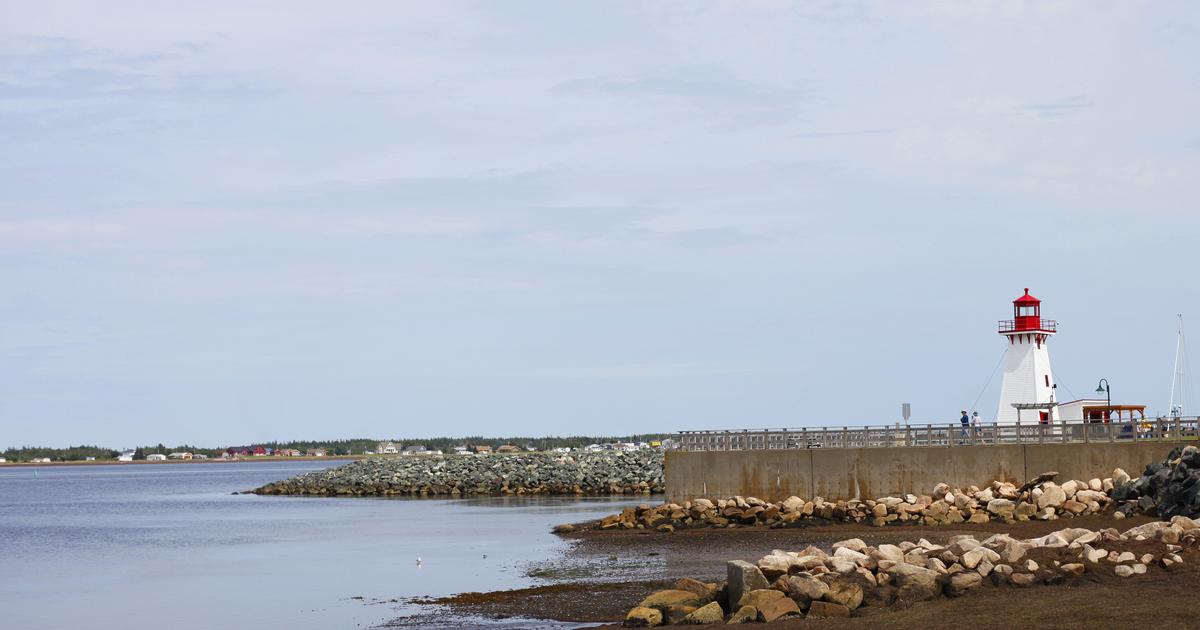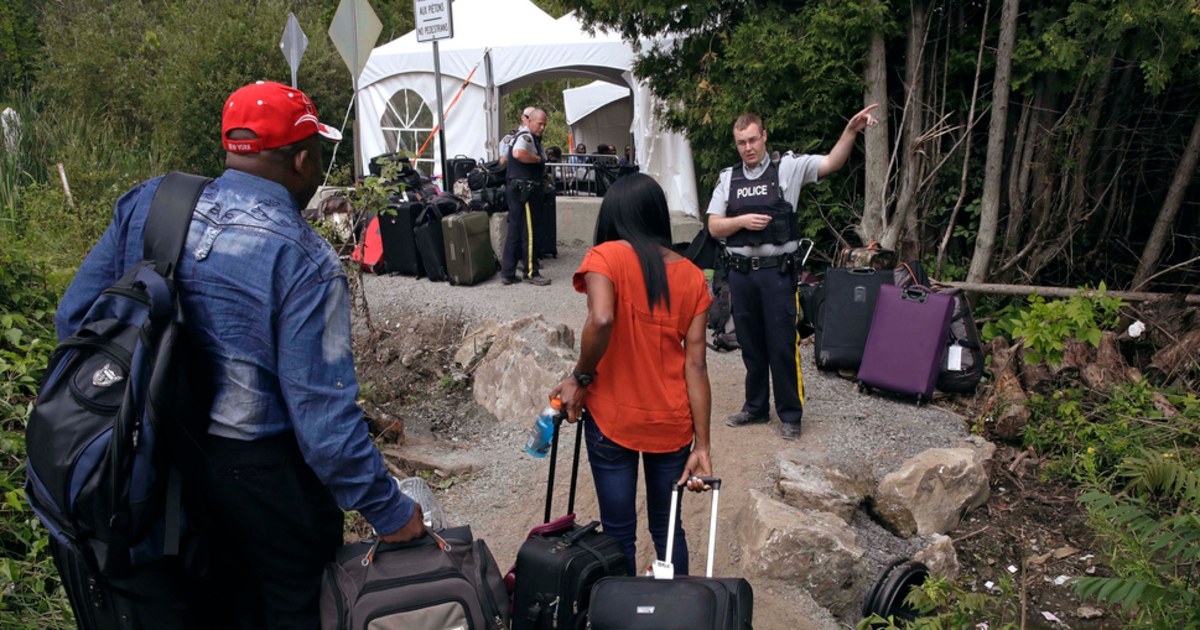Teacher and philosophy graduate, David Santarossa is a Quebec intellectual who is interested in contemporary identity issues. He notably published
“
The Woke Thought
”
(Liber) as well as a critical study on the alleged racism that would afflict the teaching of mathematics in the West.
He has collaborated with several newspapers and magazines in Quebec.
Whether in America or in Europe, the great Western figures are one after the other challenged in academic institutions.
Gone is the slightest deference to the heroes of the past, it is time for the culture of banishment.
The new victim of this culture in Canada is neither more nor less than Samuel de Champlain, the founder of Quebec in 1608.
To better situate this new episode, the reader must understand that Samuel de Champlain is, for us Quebecers, the most important historical figure of New France.
Admittedly, from the point of view of France, it is rather Jacques Cartier as the first explorer of the Gulf of St. Lawrence who carves out a place in long memory.
On our side of the Atlantic, however, it is Champlain who is the
“father of French Canada”
to use the formula of his biographer David Hackett Fischer.
Nearly a year ago, Champlain College, which is affiliated with Trent University in Ontario, the neighboring province of Quebec, set up a special committee to look into the famous navigator's legacy and then rule on two questions.
First: considering its relationship with Aboriginal people, should the college administration remove the bust of Samuel de Champlain from the campus?
And then: should the college keep the Champlain name?
Officially, these two questions are at the heart of the debate, but when we know that before the slightest conclusion was rendered by this committee, the university had already relegated the bust of Champlain to the archives, we say to ourselves that the dice were cast.
In the eyes of the administrators, there seems to be an urgent need to protect everyone's sensitivities, even if the bust has been on campus for decades.
Last month, the committee finally delivered its report, which is truly worth reading to understand the logic of these activists who seek to condemn figures of the past.
During the consultations, several activists, some of whom were of Aboriginal origin, said:
"No matter what Champlain's actions are, he is part of the Canadian colonial heritage, a heritage that led to the assimilation of Aboriginal people."
Others held a similar discourse:
“Even if Champlain was not ''violent'' towards the people of the region, he largely contributed to the colonization of Canada.
This in itself is unforgivable.”
Let's understand what is at stake here.
These militants do not even deign to worry about historical facts, simple guilt by association is enough for them.
It is no coincidence that the militants wish to ignore the actions of Champlain, they know that the founder of Quebec is a completely exemplary figure for the time.
David Santarossa
Let's understand what is at stake here.
These militants do not even deign to worry about historical facts, simple guilt by association is enough for them.
It is no coincidence that activists want to ignore the actions of Champlain, they know that the founder of Quebec is an exemplary figure for the time.
He formed alliances with the Algonquians, Montagnais and Hurons.
He learned from the natives and the natives learned from him.
When he died, some natives, the Hurons in particular, paid homage to him.
Champlain's project resulted in the birth of a Quebec people with French origins.
Champlain participated in the sharing of cultures and mutual aid between peoples.
Contrary to what the most radical activists claim, French colonization in Canada is a much more nuanced story than they let on.
David Santarossa
His project is often summarized with this quote attributed to him:
"our boys will marry your daughters, and we will become one people"
.
Contrary to what the most radical activists claim, French colonization in Canada is therefore a much more nuanced story than they let it be understood.
Champlain's exemplary character deserves mention, and even if Champlain had a darker heritage, his bust would not deserve to be removed.
Placing statues in the archives is not desirable.
We can add more to nuance the heritage of these figures, but unbolting them should not be an acceptable idea.
That said, those who accuse Champlain of having taken part in the assimilation of the natives are completely mistaken.
The assimilation of aboriginal people, because assimilation took place, there is no doubt, stems more from British colonization, and possibly from the Canadian federal government, than from French colonization or from the Quebec government.
But for the new "anti-racists", they have nothing to do with these distinctions, Champlain would have participated in colonization in the same way as the English, that's all.
Of course, Champlain is not a saint for all that.
He participated in wars, he was betrayed and betrayed.
For the time, it was the usual lot of expeditions and relations with other peoples.
It is therefore astonishing to read in the report that several natives have
“suggested that the choice of allies of Champlain as well as the latter's participation in the wars between natives contributed to the violence”
.
This detail in the report is striking: Champlain is criticized for his choice of ally.
Does this mean that if Champlain had taken the side of the Iroquois who have historically been the ally of the British, rather than the Algonquians and the Hurons, he would have had a better heritage?
Can we have a better example that history is written by the victors, here the English Canadians?
Before the arrival of the French in America, the first peoples were at war;
slavery was practiced and prisoners were tortured.
There was nothing very exceptional there.
David Santarossa
Regarding the alleged violence in which Champlain would have participated, it must be said that there is something rather banal there.
Before the arrival of the French in America, the first peoples were at war;
slavery was practiced and prisoners were tortured.
There was nothing very exceptional there.
Champlain then arrives on this territory which has its history.
He seeks allies and valuable information about the territory and the climate.
In return, his native allies want him to participate in the clashes against their enemies.
My gaze may be cynical, one should rather say realistic, but Champlain's actions are rather normal for the context.
Fortunately, in Quebec, we are still able to keep a positive memory of our heroes.
But for how much longer?
Diversity activism often begins in the rest of Canada and inevitably ends in Quebec.
David Santarossa
After listening to these consultations, which also included positive testimonies about Champlain, the committee was to write its conclusions.
Our institutions, especially in English Canada, are now fully shaped by multiculturalist ideology.
They are unable to assume a tradition and a memory and that is why, faced with contradictory testimonies, the committee decided to cut the pear in two.
We will not be surprised to learn that the bust will remain in the archives.
As for the name of the college, the committee recommended maintaining the name Champlain, but adding information here and there on campus to better contextualize the life of the explorer.
It will now be interesting to know who exactly will take care of this contextualization.
When we know that the activists had nothing to do with the veracity of the facts about Champlain, we have every reason to fear these “contextualizations”.
This story takes place in Ontario.
Fortunately, in Quebec, we are still able to keep a positive memory of our heroes, as demonstrated by the inauguration a few years ago of the Samuel-de-Champlain bridge.
But for how much longer?
Diversity activism often begins in the rest of Canada and inevitably ends in Quebec.
In 2021, the Quebec and French Ministers of Education had co-signed a letter to condemn the culture of banishment.
Quebec and France are today taking on the role of resisters in the face of this tendency to condemn the great figures of yesterday.
As the French heritage in America is in danger, the need for this joint resistance is more necessary than ever.

